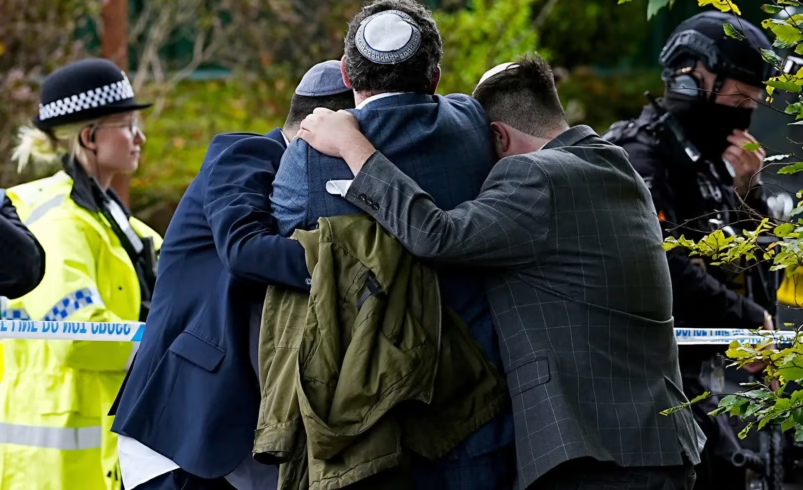Synagogue attack in Manchester on Yom Kippur sparks concern
- October 3, 2025
- 0

A violent attack outside a synagogue in Manchester on Yom Kippur 2025 has reignited fears about the persistence of antisemitism across Europe. The incident, which involved a car being driven into worshippers followed by a stabbing spree, has drawn attention to the vulnerability of Jewish communities and the troubling echoes of past hatred that many believed Europe had left behind.
According to reports, worshippers gathered for Yom Kippur prayers were targeted when a vehicle rammed into individuals outside their synagogue. The impact shattered glass beneath the wheels before the driver launched into a stabbing rampage. The attack disrupted what is considered the holiest day in the Jewish calendar, turning a moment of solemn reflection into one of fear and chaos.
Yom Kippur, often described as the Day of Atonement, is traditionally observed with fasting, prayer, and repentance. For Jewish communities worldwide, it represents a time of deep spiritual significance. In Manchester, however, this sacred day was marked by violence that left congregants shaken and underscored how places of worship remain vulnerable to targeted hate crimes.
The sound of glass crunching under tires drew chilling comparisons to darker chapters in European history when Jewish communities faced widespread persecution and violence. While many had hoped that such hatred would never resurface on European soil, the attack demonstrated that history does not always move in a straight line. The symbolism of an assault on Yom Kippur added further weight to concerns about rising hostility toward Jews across the continent.
In the aftermath of World War II, European societies pledged to confront antisemitism and ensure that such prejudice would never again take root. Yet incidents like the one in Manchester highlight how fragile those commitments can appear when confronted with acts of violence against Jewish communities. The attack has prompted renewed debate over whether Europe has truly succeeded in addressing deep-seated biases or whether old hatreds are resurfacing under new forms.
Beyond its immediate impact on victims and their families, the Manchester synagogue attack raises broader questions about security, tolerance, and coexistence within multicultural societies. For many observers, it serves as both a warning and a call to action—reminding governments and citizens alike that combating antisemitism requires vigilance not only through policy but also through education and community solidarity.
The events in Manchester have left scars that extend beyond those directly affected by the violence. They serve as a stark reminder that antisemitism remains an unresolved challenge across Europe. As Jewish communities continue to gather for prayer and tradition, they do so with resilience but also with heightened awareness of ongoing threats. Whether Europe can uphold its promise to confront hatred will remain an urgent question long after this Yom Kippur tragedy fades from headlines.